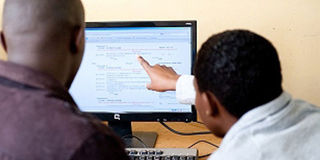Digital era: Change approach on aiding children’s homes

What you need to know:
- Organisations such as Hello World and Roke Telkom, for instance, took an initiative to provide accessible education software and learning tools with fully functioning Internet for vulnerable children in Nakivale, which was a welcome move towards economic empowerment.
Uganda has one of the youngest populations in the world at 77 per cent out of a population of 45 million people. The number of children in orphanages and children’s homes are on the rise from about 1,000 children in the 1990s to an estimated 2.7 million today. Orphanages were established to provide aid to vulnerable children and accord the necessary resources that give normal developments to a child’s life while growing up.
Mental and emotional development, in particular, are profound towards the proper upbringing of children. This is despite the fact that children exposed to institutional care do not receive the type of nurturing and stimulating environment needed for normal growth and healthy psychological development.
Therefore, according to the unique randomised control, Bucharest Early Intervention Project (BEIP, Nelson, et al., 2007), children reared in institutions showed greatly diminished intellectual performance (borderline mental retardation) compared to children raised in their families of origin. This connotes the fact that a big percentage of these children can barely, if not at all, read or write.
Much as children’s homes provide food and shelter, education should be a priority in the formation of the vulnerable children’s fostering. However, these children do not have sufficient skills passed onto them because of reasons to do with inadequate resources, limited trainees, and unskilled caretakers, among others.
With the fast-changing education spectrum going digital in this era, there is an increased demand for the Internet to access the digital tools necessary to combat one with different skills. Internet is important as it provides access to different learning tools and education software like Google Classroom, Text-To-Speech, among others, that can help someone develop analytical thinking, critical reasoning, and teamwork.
Of the 34.8 per cent adolescents in Uganda, not more than eight million can read or write. Therefore it is necessary and as the saying goes that “education is a key to success”, that partners and funders of these children’s homes use easy, digital ways to impact on lives and change the future of tomorrow.
For instance, many organisations are assisting children’s homes with different necessities that include food and sanitary materials. However, the needs for these homes go beyond this. For example, computers, Internet, and other digitalised learning tools.
Organisations such as Hello World and Roke Telkom, for instance, took an initiative to provide accessible education software and learning tools with fully functioning Internet for vulnerable children in Nakivale, which was a welcome move towards economic empowerment.
These efforts should be a challenge to other organisations to change approach in CSR and impact their communities in effective ways.
Martha Aheebwa,
[email protected]




